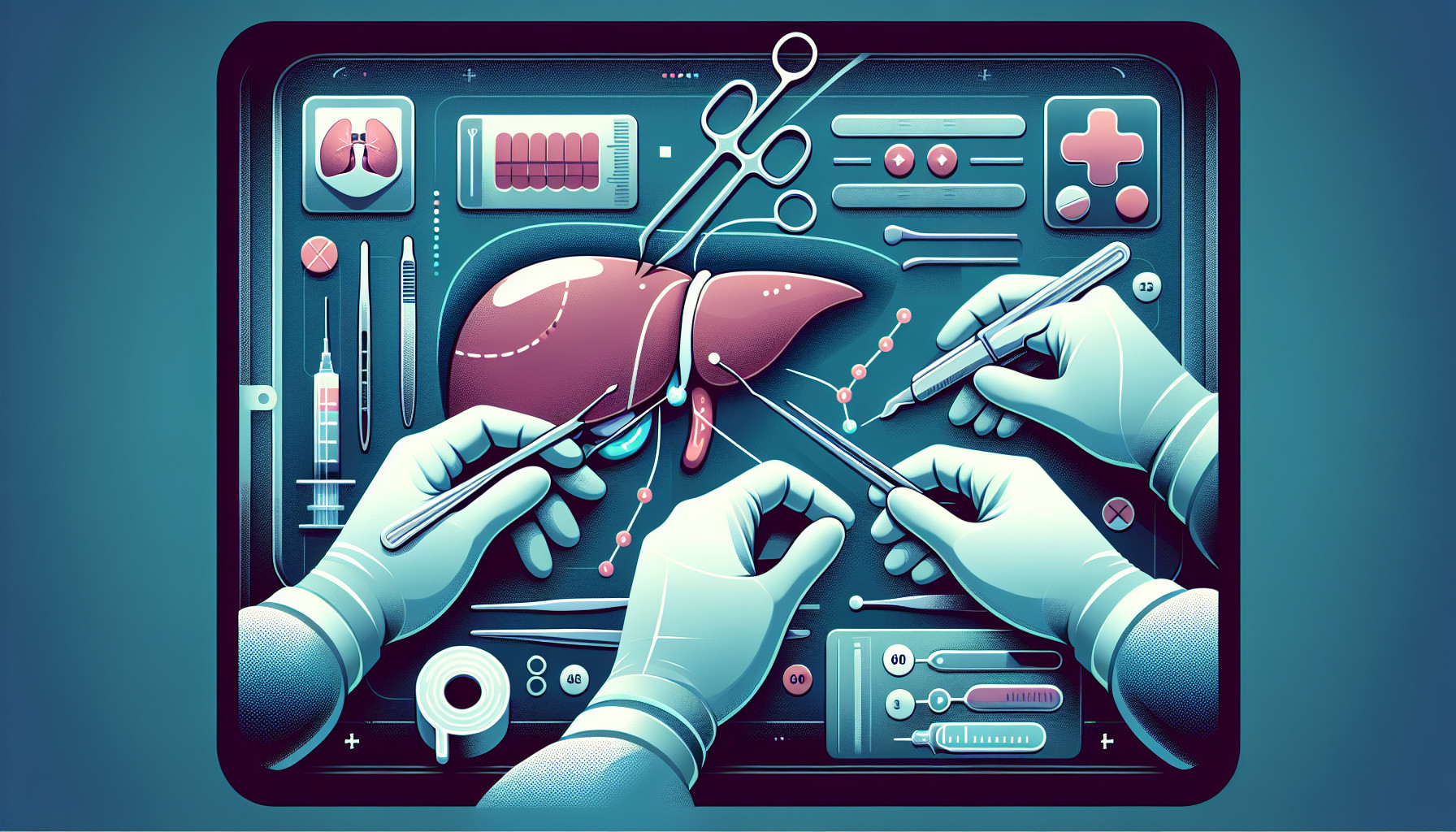Our Summary
This research paper discusses the role of liver biopsy in diagnosing and managing hepatocellular carcinoma (HCC), a type of liver cancer. Traditionally, liver biopsies have been used for diagnosis, but they’ve been used less over time due to advances in imaging techniques and the risks associated with biopsies, such as tumor spreading and bleeding. However, modern microscopic and molecular analysis of HCC can provide important information for treatment and predicting disease progression. As personalized medicine becomes more common in HCC management, it will be important to quickly identify patients who could benefit most from specific treatments. Therefore, the authors suggest the role of liver biopsy in HCC management should be reevaluated.
FAQs
- What role does liver biopsy play in diagnosing and managing hepatocellular carcinoma (HCC)?
- Why has the use of liver biopsies decreased over time in diagnosing HCC?
- Why do the authors suggest reevaluating the role of liver biopsy in HCC management?
Doctor’s Tip
One helpful tip a doctor might tell a patient about liver biopsy is to follow all pre-biopsy instructions carefully, such as fasting before the procedure and avoiding certain medications. It’s important to discuss any concerns or questions with your healthcare provider before the biopsy to ensure you are well-prepared and informed about the procedure. Additionally, it’s important to follow post-biopsy instructions, such as taking care of the biopsy site and watching for any signs of infection or complications. Remember to follow up with your healthcare provider for the results of the biopsy and to discuss next steps in your treatment plan.
Suitable For
Patients who are typically recommended for liver biopsy include those with suspected liver diseases such as hepatitis, cirrhosis, fatty liver disease, and liver cancer. Liver biopsy may also be recommended for patients with abnormal liver function tests, unexplained liver enlargement, or suspected liver infections. Additionally, patients who are being considered for liver transplantation or who require monitoring of disease progression may also be candidates for liver biopsy. Ultimately, the decision to perform a liver biopsy should be made by a healthcare provider based on the individual patient’s medical history, symptoms, and overall health status.
Timeline
Before Liver Biopsy:
- Patient presents with symptoms such as abdominal pain, jaundice, weight loss, or abnormal liver function tests.
- Patient undergoes a physical examination and medical history assessment by a healthcare provider.
- Imaging tests such as ultrasound, CT scan, or MRI may be performed to evaluate the liver and identify any abnormalities.
- Blood tests may be conducted to assess liver function and check for markers of liver disease or cancer.
- If imaging and blood tests suggest the presence of liver cancer, a liver biopsy may be recommended for further evaluation.
After Liver Biopsy:
- Patient is informed about the procedure, risks, and potential complications by the healthcare provider.
- Patient may undergo pre-procedure tests such as blood tests and imaging to assess overall health and evaluate the liver.
- On the day of the biopsy, the patient is prepared for the procedure and given local anesthesia to numb the area where the biopsy will be performed.
- The biopsy is performed using a needle to extract a small sample of liver tissue for analysis.
- After the procedure, the patient may experience some mild discomfort or pain at the biopsy site.
- The liver tissue sample is sent to a laboratory for analysis under a microscope to diagnose the presence of cancer or other liver conditions.
- Results of the biopsy are discussed with the patient by the healthcare provider to determine further treatment options and management of the liver condition.
What to Ask Your Doctor
- Why do I need a liver biopsy?
- What are the risks and potential complications of a liver biopsy?
- How will the biopsy be performed?
- How long will it take to get the results of the biopsy?
- What information will the biopsy provide about my condition?
- How will the results of the biopsy impact my treatment plan?
- Are there any alternative tests or imaging techniques that could provide similar information?
- Will I need to make any special preparations before the biopsy?
- How experienced is the healthcare provider who will be performing the biopsy?
- Are there any specific instructions I need to follow after the biopsy?
Reference
Authors: Di Tommaso L, Spadaccini M, Donadon M, Personeni N, Elamin A, Aghemo A, Lleo A. Journal: World J Gastroenterol. 2019 Oct 28;25(40):6041-6052. doi: 10.3748/wjg.v25.i40.6041. PMID: 31686761
